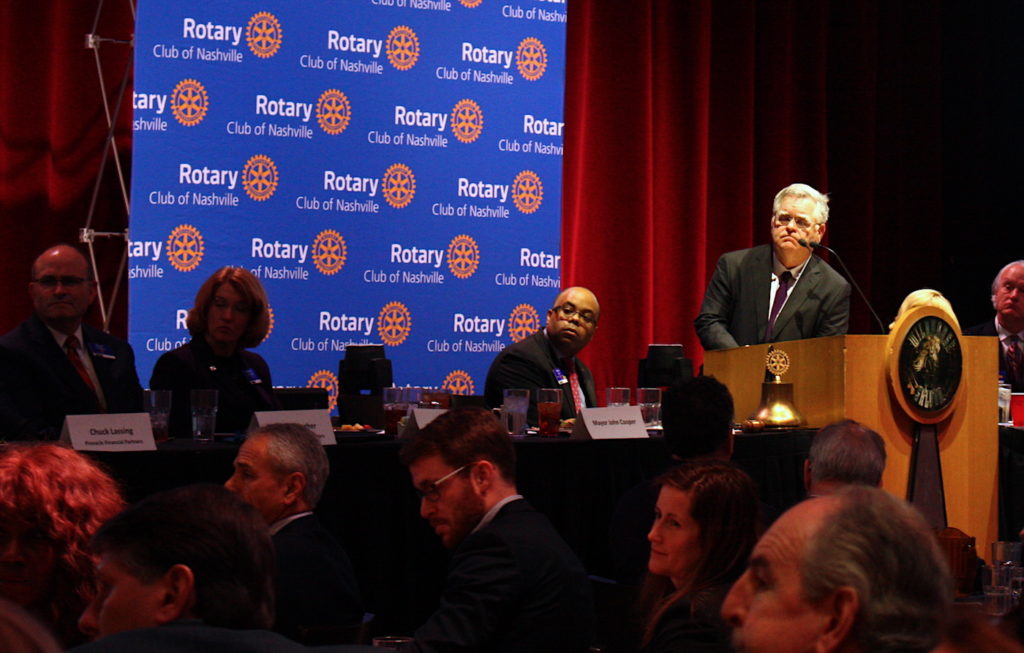
Nashville Mayor John Cooper is saying he hasn’t ruled out a tax increase in this year’s Metro budget — a contrast to some of his comments as a mayoral candidate.
The mayor spoke about the budget at the Rotary Club of Nashville on Monday and then offered a rare chance for reporters to ask questions. In that small huddle, Cooper said he doesn’t want to “pre-judge” the budget process.
“I want to legitimately examine what people need and not default to some level of magic,” he said, “because you’re trying to find what the city really needs to be a great city.”
Metro departments submitted their spending proposals on Friday.
But if anyone expected the mayor’s definitive stance on the property tax rate, it wasn’t forthcoming this week. (In January 2017, Mayor Megan Barry used a speech at the Rotary to announce that Nashville wouldn’t undergo a property tax increase.)
When Cooper was asked, he said he has “always left the door open” to a tax increase.
“People like to say ‘no,’ but I’ve always said I’m never saying never,” he said.
While campaigning, Cooper twice told WPLN News essentially the same thing — here and here — and that he would look for other budget improvements before tapping taxpayers.
But if this willingness to raise taxes sounds surprising, that’s because he’s had other takes at other times.
On Metro Council, Cooper twice voted against a property tax increase.
And during at least two mayoral debates — here and here — Cooper said he didn’t want to raise the property tax. He went so far as to write that stance in a Tennessean questionnaire.
As it stands, Cooper now has two months to deliver his spending plan. He hasn’t provided official word on whether he’ll seek a higher tax rate. Many on the Metro Council say they’ll consider making that move if the mayor does not.
Budgeting Changes
Procedural differences could make this year’s Metro budget difficult to compare to recent years.
Among the changes, outlined in this memo, is that departments shouldn’t merely ask for a similar allotment as they are accustomed to receiving.
“The problem in government budgeting, often, is that inertia, or history, is the biggest indicator of what your budget should be,” Cooper said Monday.
Instead, he wants departments to “prove that you are serving people and serving people efficiently.”
In the past two budget cycles, departments were asked to save money over the course of the year if possible. They largely met those targets, saving Metro tens of millions of dollars.
This year, department heads were asked to submit smaller requests on the front end instead of hoping to hit a savings target over the course of the year.
One outcome of this change could be the appearance of across-the-board budget cuts for Metro departments. While it’s too soon to tell — budget documents were not immediately available — one top adviser to Cooper told the city’s Blue Ribbon Commission this month that the budget will look “severe.”
Kristin Wilson, chief of operations and performance, said departments are being asked to paint a realistic picture of what would happen to city services if Metro did “nothing” to boost their budgets.
“For many cases, I don’t think they’re going to be the scenarios we want,” she said, “but at least it gives us a true baseline of where we’ve been operating.”

